The Happiest and Unhappiest Myers-Briggs® Personality Types
Can your Myers-Briggs® personality type indicate how happy or unhappy you will be in life? Does your overall life satisfaction decline based on your personality type? Today we’re going to look at some of the research done relating type to overall happiness. But before we delve into all of this, I want to make one big disclaimer:
While Statistics Show Correlations Between Type and Happiness, Your own Happiness Might Not Match the “Norm”
I’ve known many people who contradict the correlations found in the studies relating type to happiness. You can build a happy life regardless of your personality type. This article is just going to show some of the trends and it’s also going to give you some tips for increasing your overall happiness!
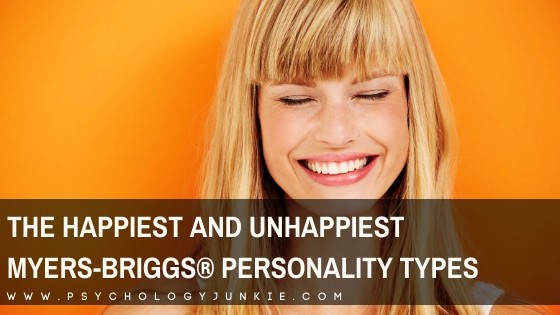
According to the MBTI® Manual, a global sample of 15,824 individuals were asked to indicate, using a 4-point scale from “not at all happy” to “very happy,” their general level of happiness. The results of this survey were fascinating and showed some interesting links between personality type and overall happiness.
The Eight Happiest Myers-Briggs Personality Types
The eight personality types that ranked themselves the happiest were:
#1 – ESTJs
#2 – ENTJs
#3 – ESFJs
#4 – ESFPs
#5 – ENFJs
#6 – ENTPs
#7 – ESTPs
#8 – ENFPs
But why would these types be happier than their introverted counterparts? Well, according to a case study conducted by Larsen and Ketelaar extraverts are more responsive to rewards, which makes them happier overall.
In a 2011 study by Ryan Howell, a psychologist at San Francisco State University, it was discovered that “highly extroverted people are happier with their lives because they tend to hold a positive, nostalgic view of the past and are less likely to have negative thoughts and regrets.” In fact, in a study of over 754 undergraduate students, Howell found that extroverts were more likely to recall positive things from the past while downplaying the negatives.
Richard Depue, a professor of human development at Cornell University, also found that extraverts produce a stronger dopamine response to the memories of their rewards.
“Rewards like food, sex and social interactions as well as more abstract goals such as money or getting a degree trigger the release of dopamine in the brain, producing positive emotions and feelings of desire that motivate us to work toward obtaining those goals. In extroverts, this dopamine response to rewards is more robust so they experience more frequent activation of strong positive emotions,” – Richard Depue, professor of human development in the College of Human Ecology at Cornell University
Another factor that might play a part in the happiness of extroverts is that for a long time Western culture has favored extroverted personalities. People who act quickly, appear friendly, sociable, and outgoing are often praised or seen as the “norm.” Introverts often feel like they have to wear an extroverted persona in order to make a positive impression or fit in. This can lead to increased anxiety or lower self-esteem for introverts as a result.
What did Isabel Briggs-Myers have to say?
Myers believed that IP types were going to be less satisfied than Extraverts and Judging types. She found that IPs tended to perceive external difficulties more fully than EJs did. According to the MBTI® Manual, “They are in the habit of using their perceiving process in the outer world. They assume that there is more to be seen than they have seen so far, that some of those things may not be pleasant or favorable, and they make a point of looking for those things.”
The Manual also says that because introverts have more interest in their inner world they tend to be more aware of internal difficulties than extraverts are.
Which Types Ranked as the Least Happy?
According to the MBTI® Manual, these types ranked themselves as the least happy:
#1 – INFPs
#2 – INTPs
#3 – INFJs
#4 – ISFPs
#5 – ISFJs
#6 – ISTPs
#7 – INTJs
#8 – ISTJs
Sadly, INFPs ranked the lowest for happiness as well as the lowest for life-satisfaction. According to the third edition of the MBTI® Manual, these types also ranked second highest in dissatisfaction with their marriages and intimate relationships.
INTPs, who ranked as the second-to least happy type, were also over-represented among males with post-traumatic stress disorder. They also ranked 15th out of the 16 types in using both cognitive and social coping resources to deal with stress.
INFJs, who ranked third-to-last, ranked highest of all 16 personality types in being dissatisfied with their marriages and intimate relationships. They also ranked highest in reporting stress associated with work, intimate relationships, and school.
ISFPs ranked highest in emotional exhaustion and depersonalization. They also ranked highest in reporting stress associated with finances and children.
All of this information can be found in the MBTI® Manual – Fourth Edition and the MBTI® Manual – Third Edition.
So What Can We Do About these Results? How Can We Be Happier?
It’s important to remember that there is no “good” or “bad” personality type. Each type has something significant to offer the world. Each type has strengths that are all their own.
What we can learn from these studies and statistics:
#1: We shouldn’t beat ourselves up (or others) for their levels of happiness. There is something clearly bigger at play here than a mere desire to be in a bad mood.
#2: We need to look for the kinds of experiences that bring us joy – and that will be different depending on our type. Our type doesn’t dictate our happiness.
#3: Introverts may be at a disadvantage in a culture that prizes extroverted behavior. This trend may be changing, however, as introversion is becoming more respected thanks to activists like Susan Cain and Jenn Granneman. Either way, it’s important for parents, employers, and school teachers to appreciate their introverted friends, employees, children, and students. Less pressure to be an extrovert will likely increase the happiness level of introverts around the world.
What Really Does Create Happiness?
There’s more to being happy than having the right four letters in your personality type! What really makes people happy? What experiences bring individuals real joy and meaning? Some things will vary for each personality type. But researchers like Ed Diener and Sonja Lyubomirsky, are helping to shine a light on what happiness really means.
Money and genetics only play a very small role.
When Ed Diener, a Distinguished Professor of Psychology, compared the people on the Forbe’s list of wealthiest Americans with the general population, he found that they were only slightly happier than average. In fact, 37% of the individuals surveyed were less happy than the average American.
Here Are Some Simple Ways to Take Control of Your Happiness:
- Keep a gratitude journal. Every night before you go to bed, write down three things you are thankful for. When you wake up, write down at least two more things.
- Forgive yourself and others. Carrying around guilt, regret, and anguish will only weigh you down. You’re punishing yourself for the same failures over and over again, and that’s an exercise in futility. Learn to forgive and have compassion for yourself.
- Have goals. Maybe you have a big goal like earning six-figures in a year. Maybe your goal involves spending 30 minutes outside each day. Whatever it is, pursuing goals and having goals makes you happier.
- Meditate. Spending even 15 minutes a day meditating can regulate your mood, reduce stress, and calm your soul.
- Exercise. Being active helps to release endorphins in your brain that decrease stress and improve your overall well-being.
- Get enough sleep. When you aren’t getting enough sleep your concentration, memory, and mood all suffer.
- Spend time on meaningful relationships. Whether you meet up with a friend for coffee or do a Skype call with your parents, spending time with friends and people who care about you is medicine for the soul.
- Be altruistic. Spending money on other people and putting your time towards altruistic activities can greatly increase your happiness and life satisfaction.
- Laugh. Break out the comedies, listen to your favorite comedians, or simply find the humor in everyday situations. Laughing strengthens your immune system, boosts your mood, diminishes pain, and protects you from the damaging effects of stress.
- Spend money on experiences over things. Material goods that are non-essential only buy short-term happiness. Put your money towards experiences so that you can build up your memory bank with positive images and increase your life-long happiness as a result.
- Get help. If you’re struggling with depression, anxiety, or mental illness your happiness can be strongly affected. Getting in touch with a trained, certified therapist can help you to deal with underlying issues that are affecting your happiness.
What Are Your Thoughts?
How do you bring happiness into your life? What suggestions would you have for other people with your personality type? Let us know in the comments!
Find out more about your personality type in our eBooks, Discovering You: Unlocking the Power of Personality Type, The INFJ – Understanding the Mystic, and The INFP – Understanding the Dreamer. You can also connect with me via Facebook, Instagram, or Twitter!
Other Articles You Might Enjoy:
Here’s What Gives You a Sense of Magic and Meaning, Based on Your Personality Type
Here’s How You Intimidate People, Based on Your Personality Type
Subscribe to Our Newsletter

Want to discover more about personality type? Get the inside scoop with Susan Storm on all things typological, along with special subscriber freebies, and discounts on new eBooks and courses! Join our newsletter today!


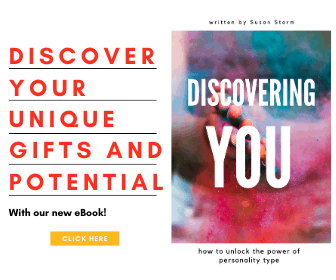
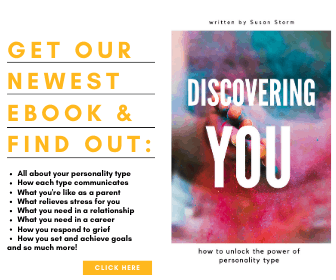

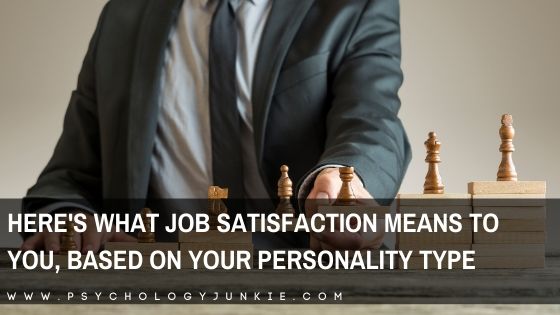
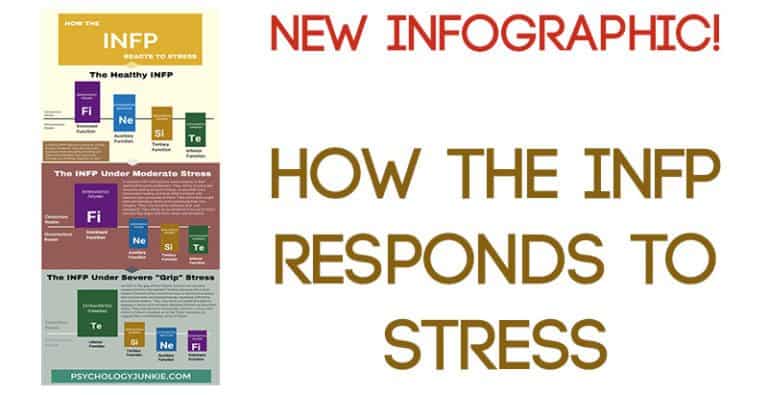
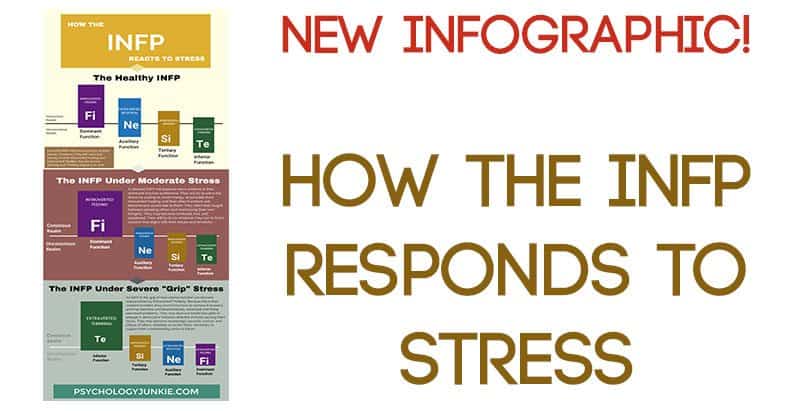
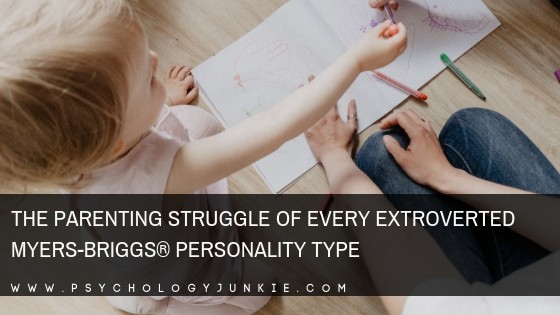
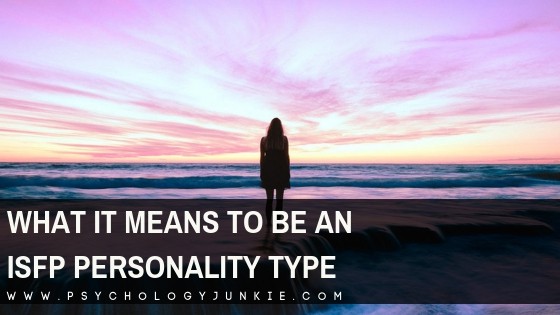
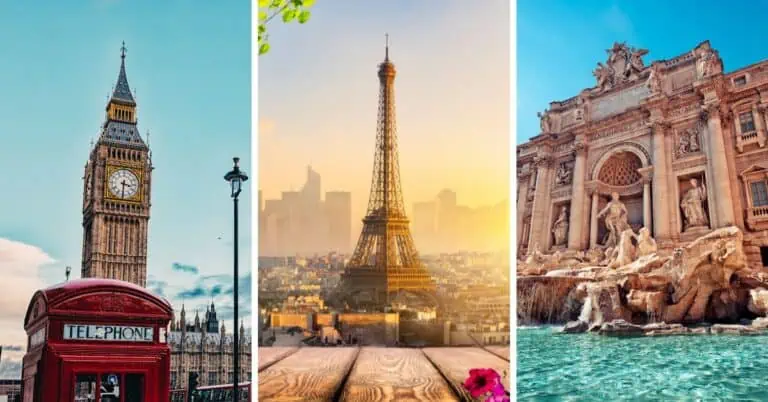
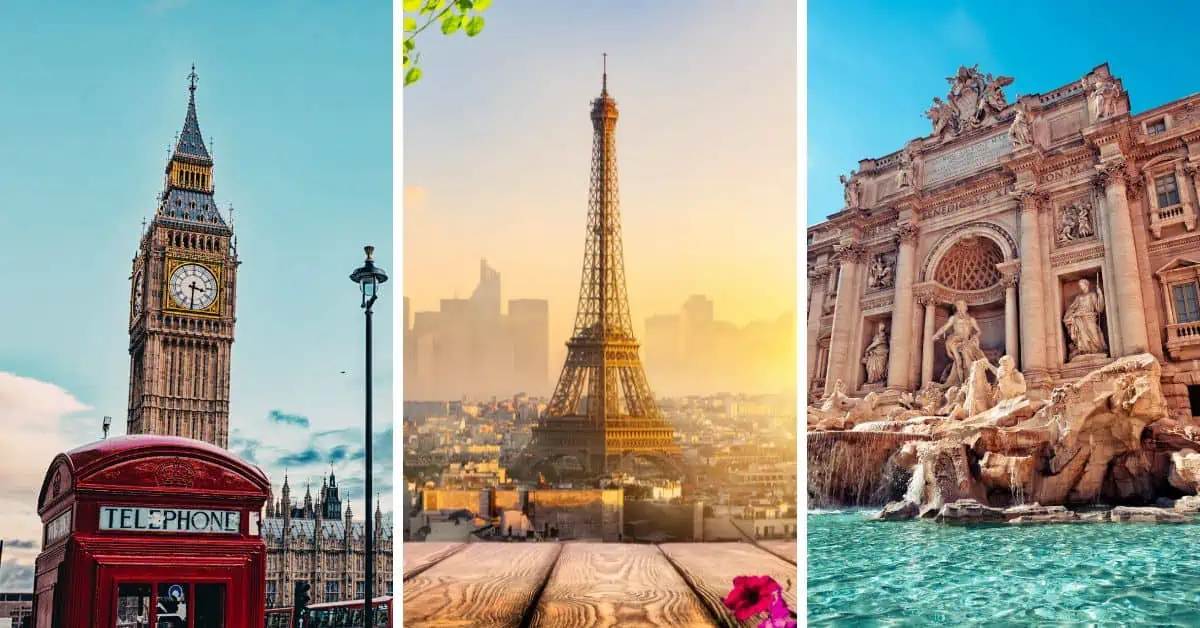
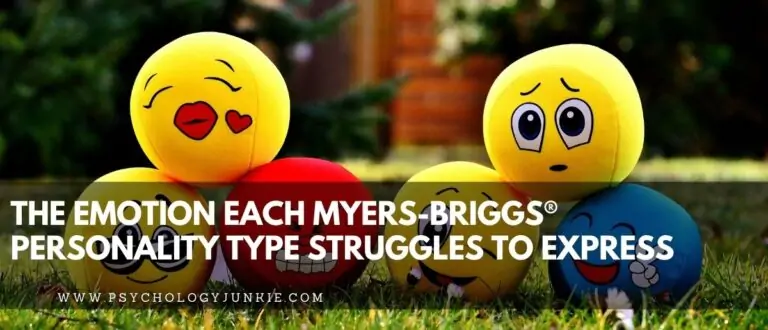
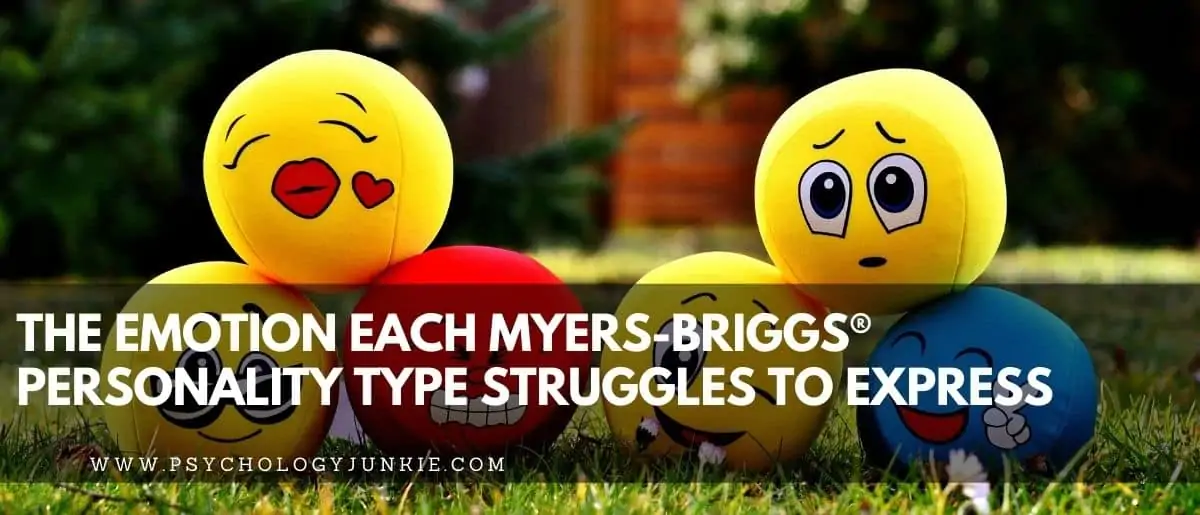
As an INFP/INFJ I totally and completely disagree with the findings in the study. I am very happy, I love my life. I have a very happy marriage. Introverted people are NOT all gloom and doom and woe is me. We are just not always as vocal or expressive about showing our happiness. Honestly, just by overhearing conversations going on around me by people I know well… I seem to be happier by far than the majority of them. Perhaps it is because I have learned what makes me happy and to pursue that rather than try to fit into a mold or idea that someone else tells me would bring me joy.
Hi Roxie!
I definitely don’t think all INFPs/INFJs (or introverts for that matter) are unhappy. If you read the article in detail you’ll see that I explain that the people who were given the questionnaire were simply asked to rank on a scale of 1-4 how happy they were “Very happy” to “Very unhappy”, etc,. From the sample size given of 15,824 individuals, these types just ranked themselves lower in happiness than the other types. This doesn’t mean that everyone of that type is unhappy – it just shows a trend. I definitely believe that a lot more goes into happiness than type!
I’ll admit I was afraid to read this article, as I had a feeling my type would be on the bottom of it. As a person who is obsessed with Myers-Briggs and also understanding what makes people happy, I’m not surprised by these results. The people around me who seem to be the happiest, are the 1) Extroverts and 2) the Planners. If relationships are the key indicator of one’s happiness, it’s no wonder the people who keep busy social calendars have the strongest relationships. I’m an INTP and would prefer to stay at home and do my own thing, but as an attractive, fortunate mother of two young children, feeding my introverted carefree desires are simply not in my cards. People around us want to get to know us, socialize, etc… I’m thankful for my extroverted planning pack of women who constantly motivate me and plan my weekends. Oh and that gratitude bit you mentioned, it’s SO TRUE. It’s the thing that sets apart the doers versus the complainers. As always, thanks for your awesome newsletters. You’ve taught me so much!
What I would take from this study, is IPs have a lot of negative thoughts associated with public situations, then bc they internally dwell on the negative in their own world, it adds anxiety to it. The question it would lead me to next is, how would positively manufactured pubic scenarios/settings affect their happiness levels. Is it matter of not being guided through tough moments of childhood.
What’s your definition for happiness? Without a definition for happiness it’s impossible to judge whether a person is happy or not. One person is perfectly happy sitting in a dark room contemplating the theories for how the multiverses interact. Another person is not happy unless engaged in a lively game of their favourite sports. I’ve been told many a time that I’m too pessimistic and serious. But this evaluation of me was so far off-target as to be laughable. I was eagerly following my curiosity into the nooks and crannies of the unknown. I’m happiest when I’m seriously doing this. I become anxious, agitated, and depressed when these natural searchings are disrupted with these baseless accusations. In my natural seeking for information to solve social questions, I’ve been told not to think so much, to just have some fun. That, too, makes for frustration and anxiety, the opposite of happiness. I’m INTJ.
It surprises me that ENFP only ranks #8! I thought I’m the happiest person in earth! haha!
I guess I am the rarest of the rare because I am a very happy INFP. Laughter, spending money on experiences instead of things, all of the advice is good. Ultimately, we are in charge of our own happiness.
My INFJ perspective. Who wants to be happy all the time? I’d much rather enjoy being happy when there’s something meaningful to be happy about. The down times make the good ones that much better and are appreciated more. Definitely preferable to going through life in a “Glenda the good witch” bubble.
I’m an infp male (on tests that measure percentages, I’ve tested as 100% feeler, which is sort of a problem in my marriage btw lol ((to an infj)). The curious part to me is that all of the literature that I’ve read concerning personality types generally seem to list INFPs as the kindest or the softest of spirits or some variation of. Not that the two must co-exist together but it seems there should be a correlation, right ? Is this more to do with the expectations that the INFP personality type have ? Sorry for the long-winded post BTW. Thanks in advance !
How do you, Susan, define “happiness”? I have deeper questions but first must know that foundation. I am an ENTJ, pausing from world domination, because you listed me #2.
I wonder if the researchers who concluded all 8 extraverted types were happier than all 8 Introverted types were extraverts who designed the study criteria based on what extraverts think happiness is. I am an INFJ and I am very happy. I don’t socialize a lot, but I have several very meaningful, lively friendships, and I am happy being alone reading , writing plays, or working on personal projects because I go into a flow state and find great meaning in these projects. I also practice gratitude, I have a great sense of humor, I write comic plays and run a play festival. My life is very happy.
My husband is an INTP and he is probably the most happy person I know. He is almost never stressed, he seldom worries about anything, He is very playful with a great sense of humor and always believes everything will turn out OK.
I think any study that claims ALL introvert types are less happy than ALL extravert types is suspect and does great disservice to introverts and how we experience happiness. I am a retired college psychology instructor and counselor and I have given numerous workshops on both Myers-Briggs types and Happiness. Most introverts are about as happy as most extraverts, but often define happiness differently and seek different ways of experiencing happiness. There should be a study done on the those different definitions and types of happiness for a better understanding of this issue.
This gives me some hope as a teenage INFJ
Well said, Pam! 🙂
I also wish the best for you, Gillian! 🙂
Thank you, Pam. I am moderately introverted, married 50 years to my similarly-inclined college sweetheart. Our elder son is similar in this regard, but the younger one is a well-adjusted extrovert who has found his niche in the health care field. The best vice our elder son received from a high school teacher was that he should try to cultivate a small circle of high-quality friends, rather than try to fit into a crowd or be everyone’s buddy. (That’s his brother’s role. 🙂 ) Both are now working professionals with good family values and well-chosen wives, and it is fun trying to discern how our two (so far) grandsons will turn out, but the younger one is an obvious extrovert, whereas his brother is a bit more contemplative and reserved. It shows even in posed formal family photos. 🙂
I kinda find it hilarious that all the extroverted types consider themselves happiest, while all the introverts find themselves least happy.
Hilarious because it is a gross over-generalization.
Definitely an interesting read…
I identify quite strongly with the INFP personality classification.
I cant speak too much to the study done which showed that extroverts have a more positive view of the past with nostalgia and less regrets.
Except, I will say I personally dont allow myself to feel regret because when you trust the path and love who you are and the person you are becoming even something perceively negative can become positive.
The study done on extroverts receiving a greater amount of dopamine from external rewards could also be twisted in another fashion.
I have come to learn that simple and small joys are overall in the long term more impactful on long term happiness than something big like obtaining a degree, or simple pleasures from food and sex. I would debate that receiving greater dopamine from external rewards could also in the long term result in less happiness. If you place so much value on receiving joy from the outside- which is ultimately something you dont have 100% control over. It could result in less happiness compared to when you derive joy from looking inwards. As our own personal feelings and how we react to something is 100% in our control. This mind set overall gives anyone more personal power and joy. Especially with the dire state of the world today, it is becoming increasingly important to find joy and strength from inside to cope with the escalating challenges we face today.
I will also mention that INFPs are known to be idealists which being idealistic in most circumstances equates to being optimistic which equates to happiness.
I do agree with the fact that we live in an extroverted favored world- especially in North America. Which could result in extroverted personality types having more ease in day to day life.
One thing I have noticed lately. With increasing amounts of the world populations living in cities, as well as the influx of stimulation and information we receive constantly from the media and our mobile devices. I begin to wonder if this will create more people to identify as introverts over time? As we receive much more outward stimulation, having quiet time to ourselves may become increasingly important. As well as the “work driven society” mindset, which can be fairly exhausting. I could see people being more introverted.
Thanks to anyone who read or considered this massive tangent!
And thank-you to the writer of this article, it definitely sparked a lot of ideas. ♡
Excuse me, but I think the most unhappiest? type of MBTI is INFJ.. It’s the saddest type of MBTI I’ve ever met! Apparently the functions can also explain this as well…
Initially the function of Ni. It is one of the most complex and strange functions that I have seen, and it seems that it is the type of function that is very complex and conservative, perhaps it will be the function that supports unhappiest because of its depth and reservation.
And Fe is going to be the main function of unhappiness!! It is one of the most considerate and caring function as well. Perhaps I can describe it as the most damaged function because it always puts others and their feelings in front of her values and feelings, and they may even give up all their values in order to please those around their. “It is so damaged that it can be exploited” anyway If the user of this function loses the people who sacrificed themselves and their values for them, they will be the most miserable and will not have any other personal values because they have lost them with the people they already sacrificed for.
I am an INFP user and I do not think that I will feel their despair and misery damaged and severe because as a Fi user, I think that I put my feelings and personal values first and I rarely give up on them, and even if people I love and appreciate already leave me, I can escape from reality to my imaginary world, or complain to my friends to console me. But that’s different with INFJ! Because they have the Ni Dom! which makes them the most discreet. and the Fe Aux which puts others before themselves (some but not all, but that’s what I’ve read) however they are the most miserable of all kinds.
And the one who always consoles me and treats me is INFJ!! This may seem strange, but yes he is the closest and the best for me, he understands me and always solves my problems. its the best! Even though it’s more unhappy than me!! I feel that I am a bad person because I always carry my burdens despite his circumstances and his psychological state. He is a damaged but he is also a healer, he helps the others despite his inability to save his damaged self.. I remember he had someone he loved and that person loved him too, and my friend gave up all his values and dreams to keep this person by his side, but one day, he saw that that person started By moving away from him and leaving him with the passage of time.. until one day he saw that person with another person.. He was very broken, but he did not give up because he thought that this was just a joke or a funny game (he is trying to deny the truth despite knowing that it is).. and after A short while ago I heard about his separation from this person.. but he did not tell me that this bothered him!! It seems he doesn’t want me to worry about him. Nevertheless, he was concealing these feelings and accumulating them as if they were the gunpowder of the bomb that was gathering inside… although he advised me not to conceal it because it might cause internal damage and a severe emotional explosion. Until he does it!! That idiot is just a deceitful cheater.. but he also told me that he does all this and advises me that because he doesn’t want me to be damaged and miserable like him. He said to me: (You must not sacrifice or leave your dreams or your feelings or what distinguishes you for others, because it does not matter if you lose them when you have those things, because the worst is to discover that you lost yourself instead) .. Although it has been a long time On his separation from that person until I still see her in his empty and pale eyes.. despite his severe damage that he still gives me my mood and helps me.. he is very miserable and damaged, I wish I could see him happy and not hard on himself but he has already lost it..
Oh and I apologize if there are spelling errors, because after all, English is not my native language.
And I hope that the author of this article reads this comment and responds to it. ✿
In addition, INFJs are much rarer which will make them less popular so even if the test is on 15,000, the INFJ report will be incomplete or clear due to its rarity.. For me, I have met a lot of INFJs in my life and some of them were normal and some were pretending to be happy, I met Lots of INFPs too, and I’m one of them ✿, apparently “the majority of INFJs I’ve met” to me were the most miserable when I got to know them well, they seem to make everyone happy so as not to worry them, but they are more damaged internally and psychologically but because they have Fe I can say they are good actors with happiness, but not all. Some seem happy, so would it, but if I compare unhappiness I would say based on my experience face to face with people, INFJ > INFP, of course I’ve seen a lot of unhappy and sad INFPs, but they seem more concerned with their feelings and values, though Unlike most INFJs I’ve met, they look like in pain, but they’ll do anything for you and take care of you no matter how sad (some not all).. Plus I’m not sure but this is a life experience not a test..
Even though INFJs are the rarest, there are a lot of them online being interested in typology. So I’m guessing that a lot of the people subscribed to Susan’s mailing list (and therefore answered her survey) are INFJs.
I disagree as an INFP, then of course we’re all different, but personally my strong imagination just makes reality harder to stomach same with my romantisation of the past, but of course there are happier infps and sadder infjs
INTJ-A male here. I am extremely happy with my life. I have always charted my own course, never followed trends, always known who I was, what I wanted, and where I wanted to go. High on my list of personal values are personal freedom, self-reliance, individual accountability, loyalty to family and friends, and ethical and compassionate treatment of others.
I consider myself to be in a neutral mood most of the time. Things could always be better or worse. I agree that infp seems to be the saddest since that type seems to be the emo/goth/punk type. And i have an estj friend who is always happy and wants to be around other super happy people. So this article confirms what i thought before about the types.